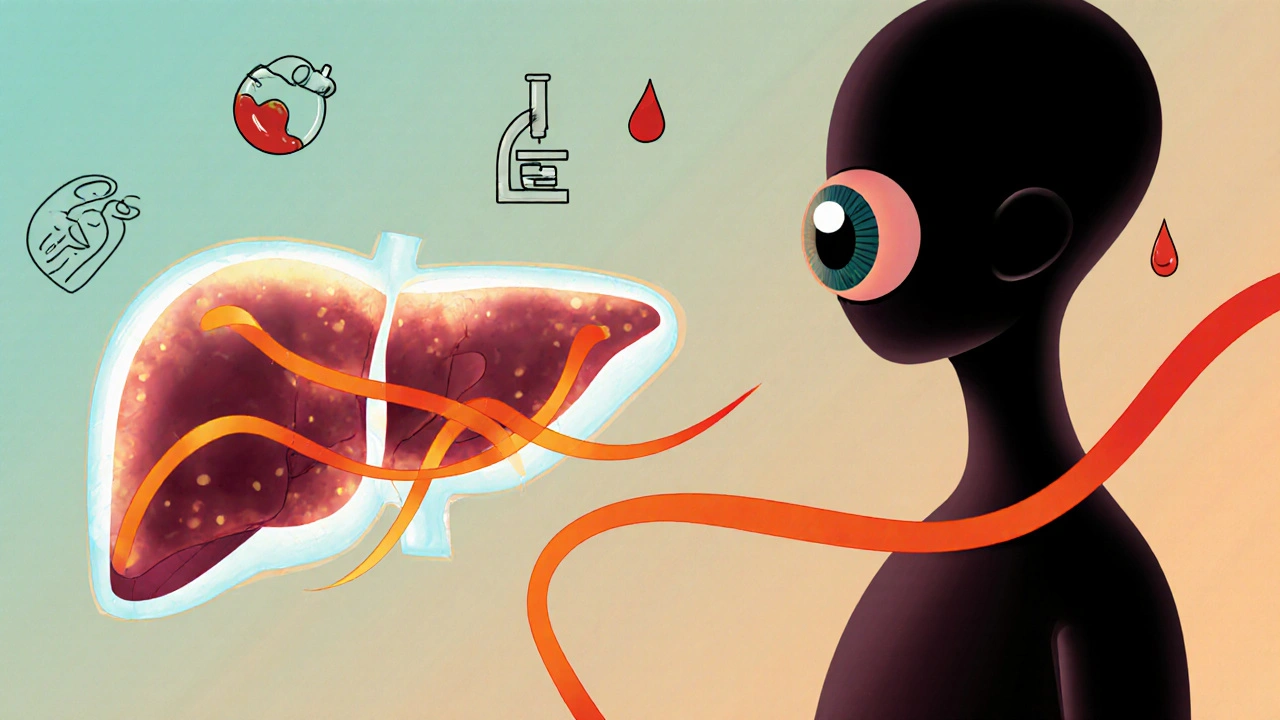Chronic Hepatitis C: Causes, Treatments, and What You Need to Know
When you hear chronic hepatitis C, a persistent viral infection that attacks the liver and can lead to scarring, cirrhosis, or liver cancer. It's not just a one-time illness—it's a silent condition that can sit in your body for years without symptoms, slowly damaging your liver until something serious happens. Unlike acute hepatitis C, which some people clear on their own, chronic hepatitis C means the virus is still active after six months. About 75% to 85% of people infected with hepatitis C virus (HCV) end up with the chronic form. That’s why testing matters—especially if you’ve had a blood transfusion before 1992, used injectable drugs, or were born between 1945 and 1965.
Antiviral therapy, modern drug treatments that target the hepatitis C virus directly. Also known as direct-acting antivirals (DAAs), these medications have changed everything. Ten years ago, treatment meant months of injections, awful side effects, and low success rates. Today, most people take one or two pills a day for 8 to 12 weeks and clear the virus in over 95% of cases. Drugs like sofosbuvir, ledipasvir, and glecaprevir aren’t just effective—they’re well tolerated. You won’t feel like you’re being poisoned. You’ll just feel better, slowly, as your liver begins to heal. But here’s the catch: you have to know you have it first. Many people with chronic hepatitis C don’t know they’re infected until they develop fatigue, joint pain, or jaundice. And by then, the damage might already be advanced.
Liver disease, the long-term consequence of untreated HCV infection. Chronic hepatitis C doesn’t just affect your liver—it can trigger fatty liver, fibrosis, and eventually cirrhosis. Once cirrhosis sets in, your risk of liver cancer jumps. That’s why early detection and treatment aren’t just about getting rid of the virus—they’re about saving your life. Even if you feel fine, a simple blood test can tell you if you carry HCV. And if you do, treatment is faster and easier than ever. You don’t need to live with the fear of what’s coming next. The science is clear: treat it early, and you can live a normal, healthy life.
Below, you’ll find real comparisons and guides from people who’ve been there—whether they’re weighing treatment options, managing side effects, or navigating life after cure. These aren’t theoretical articles. They’re practical, honest, and focused on what actually works. You’ll see how medications like those used for blood pressure, nausea, or pain interact with liver health. You’ll learn what to ask your doctor, what to watch out for, and how to stay ahead of complications. This isn’t just information. It’s your next step toward taking control.
How Chronic Hepatitis C Affects Your Vision and Eye Health
Explore how chronic hepatitis C can damage vision, the eye conditions linked to it, and what you can do to protect your eye health.
More
